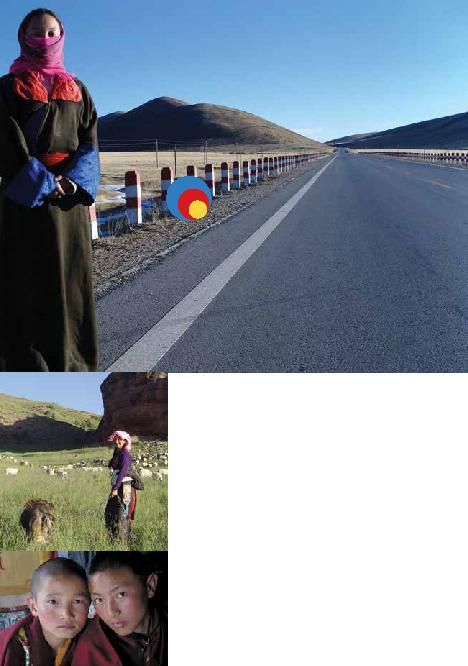
Old Dog
(2011) Directed by Pema Tseden
Saturday - September 22 - 6:30 p.m.
On the high Tibetan plains, a family struggles to survive.
Their dog, a mastiff that has been in the family for years, is
worth a fortune. But, what will it cost to lose it? After selling
the dog to a dealer, Gonpo realizes what the decision has
done to his family's dynamic, and understands what he needs
to do. Old Dog is a poetic film about Tibet's changing society,
where old values conflict with new. Tibetan language with
English subtitles. (35mm. 88 min. Not rated.)
Director Pema Tseden is scheduled to be present.
The Search
(2009) Directed by Pema Tseden
Saturday - September 29 - 7:00 p.m.
A Tibetan film director travels from village to village looking for actors to star in a film based on
a Tibetan opera. Traveling by car, the director holds auditions in the most unlikely locations
construction sites, streets, bars, night clubs, and monasteries. This road movie takes us straight
into the heart of a changing Tibet, raising questions about what tradition and identity mean in the
modern world. Tibetan language with English subtitles. (35mm. 117 min. Rated PG)
Silent Holy Stones
(2005) Directed by Pema Tseden
Saturday - September 15 - 6:30 p.m.
A young Tibetan lama from a mountain monastery, returns
home for the New Year's celebrations. Fascinated by TV serials
of Buddhist stories, he wants to bring his family's television
to the monastery. The young boy struggles to balance his
strict Buddhist training with explorations of the outside
world through the novelty of television. Tibetan language with
English subtitles. (35mm. 102 min. Not rated.)
TIBETAN
NEW WAVE CINEMA
21
cinema.indiana.edu
Tibetan New Wave Cinema
Pema Tseden is considered the first Tibetan filmmaker to produce entirely Tibetan films.
His first feature film, The Silent Holy Stones, set the tone for his films to come use of
Tibetan language, all Tibetan cast and crew, and Tibetan locations giving them an au-
thenticity of Tibetan culture set in contemporary complexities of everyday modern life. The
series is sponsored by Indiana University Student Association, Central Eurasian Studies
Department, Sinor Research Institute for Inner Asian Studies, East Asian Studies
Center, Tibetan Studies Student Association and IU Cinema. Special thanks
to Eveline Yang. Screenings are free, but ticketed.

